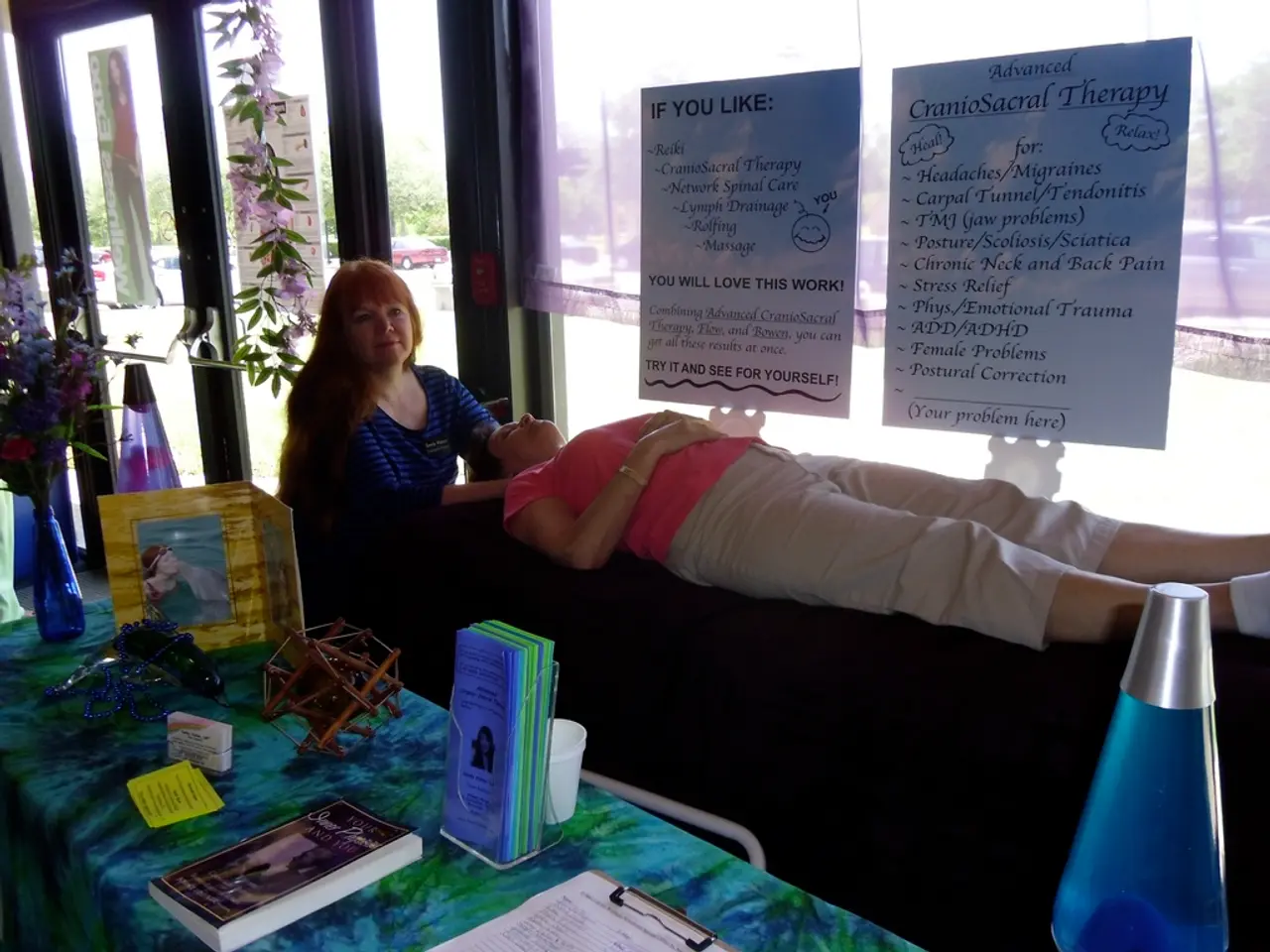Exploring Emotional Focused Therapy (EFT): Its Nature and Suitability for Individuals
Emotion-Focused Therapy (EFT) is a type of therapy that helps individuals become more aware of their emotions, explore them, understand them better, and use them in a way that leads to a healthier life. This humanistic approach, which emphasizes the belief that people have an innate desire to seek growth, has been developed as part of the "third wave" of cognitive-behavioral therapies.
EFT originated in the late 20th century as a development within psychotherapy, integrating emotional awareness and processing. It evolved as a significant part of the field, focusing on emotion as a key agent of change. This therapy was developed by Leslie Greenberg and colleagues as an integration of experiential and humanistic approaches, with a primary focus on emotion.
EFT is used as a short-term intervention, typically involving eight to 20 sessions. The therapy offers a safe environment to practice dealing with uncomfortable emotions, such as reimagining traumatic events or expressing primary emotions in couples therapy. It encourages individuals to explore emotions on a deeper level, distinguishing between primary and secondary emotions.
In EFT for individuals (EFIT), the goal is to improve an individual's internal sense of security, build self-compassion, and form more secure attachments with others. For families (EFFT), the aim is to acknowledge unspoken patterns, express oneself, and find healthier ways to interact. In couples therapy (EFCT), the goal is to notice and change unhealthy patterns in interactions.
The effectiveness of EFT relies heavily on the individual therapist's skills, as it's a structured process involving intense emotional engagement. Before seeking an EFT therapist, one should consider their readiness to engage with uncomfortable emotions, the willingness of others involved, the absence of domestic violence, and the length of the process.
The stages of EFT intervention are stabilization (or de-escalation in couples or family therapy), restructuring, and consolidation. During processing, individuals are asked to reflect on emotional encounters and their feelings during the process. The therapist summarizes the process and points out the progress made in the previous steps, acknowledging or celebrating achievements.
When selecting an EFT therapist, one can ask about their experience, the incorporation of other forms of therapy, a typical session, length of work with clients, and adjustments to the treatment timeline based on the person's circumstances. The International Centre for Excellence in Emotionally Focused Therapy (ICEEFT) offers a directory to find nearby EFT therapists.
EFT follows the idea that emotions can act as messengers for needs and can motivate individuals to take action. By focusing on emotions, EFT aims to establish a "safe haven" to explore feelings and better navigate unhelpful emotions and relationship conflicts. This approach can lead to better emotional regulation, improved relationship satisfaction, and overall psychological well-being.
One basic intervention technique that an EFT therapist will rely on during sessions is the EFT Tango, involving five "moves" that a therapist uses to help individuals become more aware of their feelings and work through emotional experiences. Emotion-focused therapy can provide a transformative journey towards emotional understanding and personal growth.








